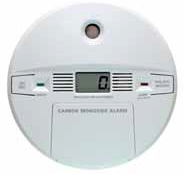Firefighters save NYC family suffering from carbon monoxide gas poisoning
 A whole family was injured by a carbon monoxide gas leak in NYC early morning yesterday. Initially called for a fall accident, the firefighters arrived to a Flushing home in Queens and found the mother unconscious in the bathroom and the dad circling the apartment and talking in a way that didn’t make sense. One of the two kids was crying. An elderly man was also present in the house. The FDNY checked the house for carbon monoxide and found that the level of CO was at 755 parts per million, an extremely high and fatal level. The family was immediately transported to the hospital to be treated. They are now in stable condition.
A whole family was injured by a carbon monoxide gas leak in NYC early morning yesterday. Initially called for a fall accident, the firefighters arrived to a Flushing home in Queens and found the mother unconscious in the bathroom and the dad circling the apartment and talking in a way that didn’t make sense. One of the two kids was crying. An elderly man was also present in the house. The FDNY checked the house for carbon monoxide and found that the level of CO was at 755 parts per million, an extremely high and fatal level. The family was immediately transported to the hospital to be treated. They are now in stable condition.
The family had recently moved into the Queens house. They hadn’t installed CO detectors which are mandatory in New York City. According to the FDNY, the gas leak was coming from a defective heating unit that was venting CO in the house. The FDNY told the NY Daily News that “some work was recently done to the furnace and it wasn’t done to code”.
Carbon monoxide is a very dangerous gas because it has no smell and no color. The first symptoms of CO poisoning are upset stomach, vomiting, headache, chest pain, dizziness and confusion. Further intoxication can make people pass out and ultimately die. People who are sleeping or who are drunk may die without even feeling the first symptoms.
In New York, the law requires that almost every house and apartment including one and two family dwellings be equipped with carbon monoxide and smoke detectors. Hotels, schools, universities and libraries as well as hopsitals and nursing homes also have to be equipped with carbon monoxide detectors. Their rules are however different than the rules for private homes. More information about New York laws in regards to protection against Carbon monoxide poisoning can be found on the nyc.gov website
 New York Personal Injury Attorneys Blog
New York Personal Injury Attorneys Blog


